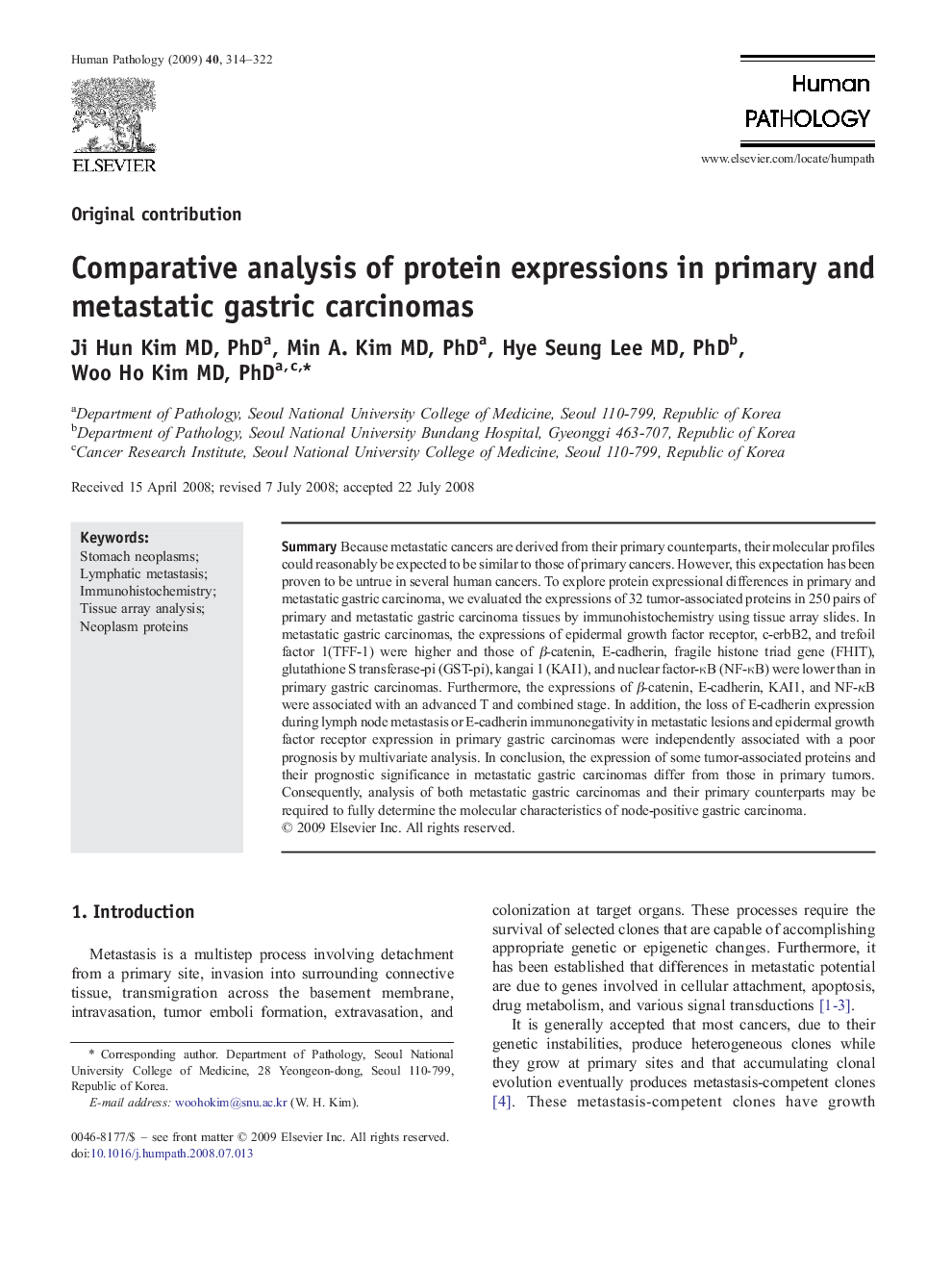| Article ID | Journal | Published Year | Pages | File Type |
|---|---|---|---|---|
| 4134904 | Human Pathology | 2009 | 9 Pages |
Abstract
Because metastatic cancers are derived from their primary counterparts, their molecular profiles could reasonably be expected to be similar to those of primary cancers. However, this expectation has been proven to be untrue in several human cancers. To explore protein expressional differences in primary and metastatic gastric carcinoma, we evaluated the expressions of 32 tumor-associated proteins in 250 pairs of primary and metastatic gastric carcinoma tissues by immunohistochemistry using tissue array slides. In metastatic gastric carcinomas, the expressions of epidermal growth factor receptor, c-erbB2, and trefoil factor 1(TFF-1) were higher and those of β-catenin, E-cadherin, fragile histone triad gene (FHIT), glutathione S transferase-pi (GST-pi), kangai 1 (KAI1), and nuclear factor-κB (NF-κB) were lower than in primary gastric carcinomas. Furthermore, the expressions of β-catenin, E-cadherin, KAI1, and NF-κB were associated with an advanced T and combined stage. In addition, the loss of E-cadherin expression during lymph node metastasis or E-cadherin immunonegativity in metastatic lesions and epidermal growth factor receptor expression in primary gastric carcinomas were independently associated with a poor prognosis by multivariate analysis. In conclusion, the expression of some tumor-associated proteins and their prognostic significance in metastatic gastric carcinomas differ from those in primary tumors. Consequently, analysis of both metastatic gastric carcinomas and their primary counterparts may be required to fully determine the molecular characteristics of node-positive gastric carcinoma.
Related Topics
Health Sciences
Medicine and Dentistry
Pathology and Medical Technology
Authors
Ji Hun MD, PhD, Min A. MD, PhD, Hye Seung MD, PhD, Woo Ho MD, PhD,
